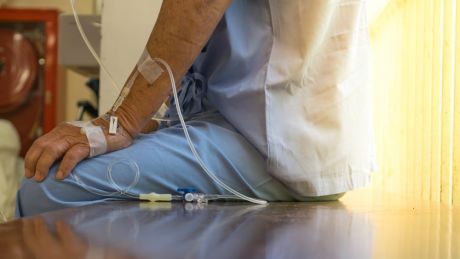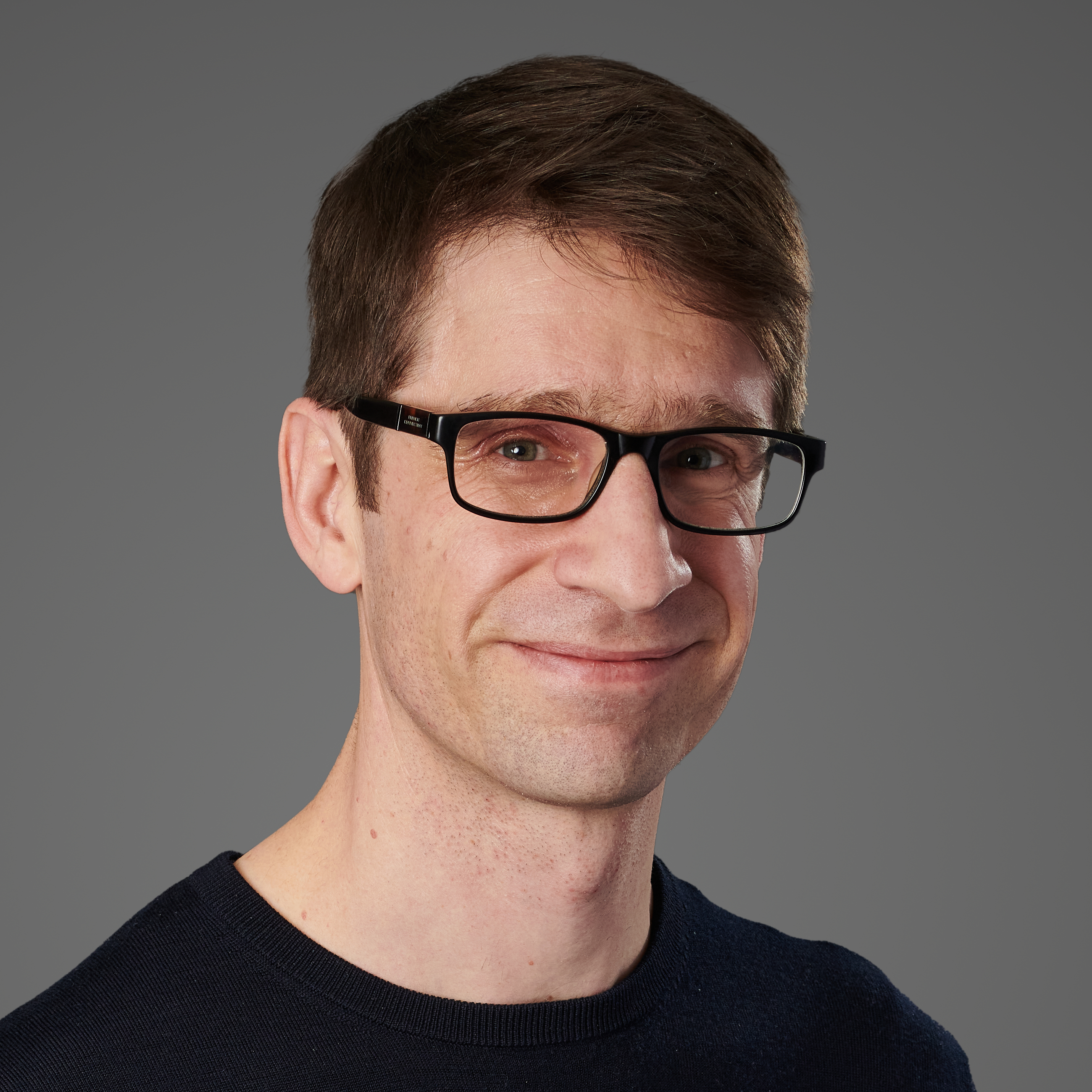What It’s Like To Have Cancer
Shit, obviously, but it can help men with cancer to talk about it – so let’s talk about it

Coach spends a fair amount of time covering health news and advice in the hope that we can help you avoid the big C later down the line, but it’s a sad reality that in all likelihood someone you know will get cancer, and you may too. When it happens the effects go beyond the physical – it takes an unimaginable emotional toll, too.
Research from cancer support charity Macmillan suggests 20% of men with cancer say they experience “a loss of masculinity” while going through treatment, but around half of men with cancer who are in a relationship rarely or never talk to their partner about how they’re feeling. Which is a problem, because it’s a lot harder to shoulder that emotional burden alone.
Macmillan’s Say The Word campaign encourages men with cancer to seek support, an idea we’re wholeheartedly behind. To find out more about what it’s actually like to go through this experience, and how friends can best support a pal with cancer, we spoke with Adam Golder, 25, who had to deal with testicular, and then lung, cancer.
When did you get cancer? What happened?
Back in February 2015 I was diagnosed with testicular cancer. It started as you’d expect. I noticed a bit of swelling down there and thought, “best get that checked out”. Thank God I did.
RECOMMENDED: The Cancer Symptoms Young Men Shouldn’t Ignore
For that kind of cancer it’s a relatively straightforward procedure – in and out of the hospital in a couple hours and about two weeks recovery time. You’re confined to the sofa but that’s never a bad thing and then it was fine. But things went south for me about four months later. You have regular blood tests for cancer markers and my markers just spiked. The cancer had spread to my lungs and for a few months I had to have quite a lot of chemotherapy.
That was hard. That was the part that changes you, that sets you quite far back – where you go into the wilderness for a bit. You’re a sick man. You sort of end up in this different parallel universe.
Get the Coach Newsletter
Sign up for workout ideas, training advice, reviews of the latest gear and more.
That’s the thing with chemotherapy – it doesn’t just hit your body, it hits the mind as well. It really takes a heavy toll on you. But I’m still comparatively lucky based on a lot of other people I know. I had about three cycles, which is effectively three times three weeks of relatively intensive chemotherapy and a recovery period.
That said, it’s not like you can’t function. I could certainly do plenty of things. I went out for beers all the time on treatment [laughs]. My last day of treatment… I ill-advisedly went out the night before and got quite drunk, and the following morning was probably one of the most horrific days of my life. They couldn’t find a vein because I was so dehydrated.
How long did it take to get back to full health?
In terms of being up to 100% you’re probably looking at a year of your life from being diagnosed to actually back to being as confident and as composed, as together as you were. You just have to make peace with that.
Who did you tell when you got diagnosed?
First time I had it I told my mum and sister because I’m quite close with them. I remember pitching it to them relatively nonchalantly. “I’ve got a bit of something on my right testicle but I’m sure it won’t be anything, they prescribed some antibiotics, I had some antibiotics and if that works great, and if not I’m sure it’ll be fine.” Then I had a conversation with my girlfriend.
I went to have my consultation with my girlfriend. From there everything happened so quickly that you don’t really have time to react at all.
With the chemotherapy, I was sat with my mum when they announced it and that was quite hard. You’re sitting in this small room with your mum and they’re telling you they’re going to have to take immediate action on this. So I didn’t really have to tell her – it was all out in the open.
Were you working at the time?
Yes. I worked as a salesman for a storage company, although I work in customer services now. It was quite a high-pressure sales role, which meant it was all the more difficult going through that and losing a lot of confidence. I took probably about a month off when I had the operation but then having taken two, three months to get back into it, I had to take another three months off.
Really I went back to work too soon but you become so desperate to establish some sort of normality. You get tired of being the sick man of your working friendship group.
Were there any instances when a friend did something for you where you thought, “That was exactly what I needed”?
Definitely. People coming to visit me in hospital makes a huge difference. Especially when you’re lying in bed and you’re basically being pumped full of chemicals all day long. It really makes a difference to have a chat, meet people, have a laugh.
The best thing friends can do is say, “Do you want to go for a pint?” It makes all the difference to have a couple of drinks and feel normal again. You can forget that you’ve got this going on. It’s always in the back of your mind and the only time you really forget is when you’re having a laugh – it makes a massive difference.
How does it feel to have that nagging in the back of your mind all the time?
Oh, it’s horrendous. What I realised is you don’t really ever experience fear in your life. You have moments where you might have a close shave with a car and get a hit of adrenaline, but you don’t feel fear which lingers and that stays with you when you close your eyes at night. You can’t tell yourself it’ll be OK, you can’t make that promise to yourself. That’s probably the worst part, I would say. It’s hard to describe the feeling.
Did you try to express that feeling to people? Did that help at all?
No, that’s the thing. You’ve got a stock reaction to it. “How’s it going?” “Not great, I’ve got cancer, obviously, but it’ll all be fine.” It just comes out instinctively, but to actually sit down and have a proper conversation… Actually, that’s one of the few things you can do for someone – the chance to sit down and have a beer, it takes the edge off, and sometimes you feel OK actually talking about it.
But it’s not something that comes easily to us men. To sit down and actually properly say, “I’m scared and I can’t promise that I’ll be OK”. I think that’s the first time those words have come out of my mouth, because I think sometimes speaking about something can make it real and you don’t want it to be real even if it is.
Would you advise people whose friends have such a serious illness to give them space, or ask lots of questions?
You can’t make people want to talk about it – you can just be there for them. A small act of kindness goes a long way. The offer of a pint or a coffee at hospital. You don’t have to discuss the big things, sometimes it’s nice to have a laugh and ignore it and be normal. It’s one of those paradoxes.
Do you feel like you’ve changed your approach to talking about your problems based on the experience of having cancer? Do you find it easier to talk about your fears?
I wouldn’t call it easy. I almost feel guilty when I talk about it at length because it’s a subject that brings the mood down and you’re always conscious of that. Some people rattle on about the most inane nonsense for ages, but you feel like you can barely say more than a sentence on it.
It’s certainly easier when you feel that you’ve got a bit of distance to it than when it’s very real and something that you’re still fighting against. Even now when I’m two, three years into it. All the signs are good so far, I’m not quite out of the woods yet – well, my health and everything is fine, but it’s just a matter of if it comes back. I’ve still got a couple of years to go before I’m truly clear.
How did you get involved with Macmillan?
They got in touch and asked if I wanted them to introduce me to anybody. It was through my teenager and young adult ward, which Macmillan helps to fund. They put me in touch with so many people, and I’ve made some of the best friends of my life through them.
I’ve met people from all different walks of life and they’re my best friends, they’re my family now. So I’m very grateful for them.
Was it easier talking to people in the same situation?
Oh yeah, so much easier, that’s why I’m such good friends with them because it feels like you’ve got something in common, an unspoken bond. Even though cancer’s such a diverse thing, and people have it a lot worse than I do, you’ve got common ground and you can talk and laugh about it. The people I’ve met there are such a great laugh. Good, kind-hearted people. And looking back on it I’m glad I went through it, just because of meeting a lot of friends.
Adam is supporting Macmillan Cancer Support and the building and construction industry’s campaign to help men talk about cancer and the support available. For more information visit macmillan.org.uk/saytheword

Jonathan Shannon was the editor of the Coach website from 2016 to 2024, developing a wide-ranging experience of health and fitness. Jonathan took up running while editing Coach and used the training plans on the site to run a sub-40min 10K, 1hr 28min half marathon and 3hr 6min marathon. He’s an advocate of cycling to work and is Coach’s e-bike reviewer, and not just because he lives up a bit of a hill. He also reviews fitness trackers and other workout gear.
